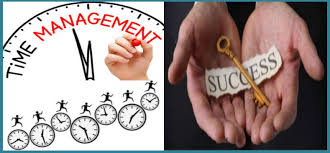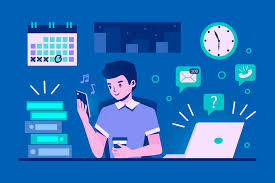How to Use Flashcards for Efficient Studying
Flashcards are a powerful and widely used tool for studying. They are simple, versatile, and effective for improving memory retention, making them an essential part of any student’s study routine. Whether you’re preparing for exams, learning a new language, or mastering complex concepts, flashcards can help you study smarter, not harder. In this article, we’ll explore how to use flashcards effectively for efficient studying and how to make the most out of this valuable tool.
What Are Flashcards and Why Are They Effective?
Flashcards are cards with a question or concept on one side and the answer or explanation on the other. They allow students to actively engage with the material by testing their recall, which reinforces memory and enhances understanding. The effectiveness of flashcards lies in their ability to promote active learning, improve retention, and make studying more interactive.
Here’s why flashcards work so well:
- Active Recall: Flashcards require you to retrieve information from memory rather than just passively reading or listening. This process of recalling information strengthens neural connections, which helps to cement the material in long-term memory.
- Spaced Repetition: Flashcards are a great tool for spaced repetition, which involves reviewing the cards at increasing intervals. This technique optimizes the forgetting curve and boosts long-term retention.
- Portability: Flashcards are easy to carry, making them perfect for quick reviews on the go. Whether you’re on the bus, waiting for a class to start, or taking a break, you can easily squeeze in some study time with flashcards.
- Versatility: Flashcards can be used for almost any subject or skill. You can use them to memorize vocabulary, formulas, historical events, or even practice math problems. Their adaptability makes them a universal study tool.
How to Use Flashcards Effectively
While flashcards are a great study tool, it’s important to use them correctly to maximize their benefits. Here are some tips on how to use flashcards efficiently:
1. Keep It Simple and Focused
When creating flashcards, keep the content simple and focused. A flashcard should contain one piece of information or concept at a time. This prevents overwhelming yourself with too much information. For example:
- Question: What is the capital of France?
- Answer: Paris
For more complex topics, break down the material into smaller, digestible parts. This will make the studying process more manageable and effective.
2. Use Both Sides of the Card
One side of the flashcard should contain a question or prompt, while the other side should contain the answer. For example:
- Front: What is the formula for the area of a circle?
- Back: Area = πr²
This format helps you quiz yourself and actively recall information, which improves memory retention.
3. Incorporate Visuals
Adding visuals to your flashcards can make them even more effective. Studies have shown that visual learning improves memory retention and comprehension. For example, when studying biology, include diagrams, pictures, or illustrations on one side of the card to help you visualize the concept. In language learning, you can add pictures alongside new vocabulary words.
4. Use Spaced Repetition
Spaced repetition is a technique where you review the flashcards at increasing intervals, which helps you remember information for the long term. The idea is that the more often you review a piece of information, the better it will stick in your memory.
There are many apps and tools, such as Anki or Quizlet, that use spaced repetition algorithms to help you review your flashcards at the optimal time intervals. If you’re using physical flashcards, you can organize them into piles based on how well you know the information. Review the difficult cards more frequently and the ones you know well less often.
5. Shuffle the Cards Regularly
Don’t memorize the order of your flashcards. Regularly shuffle the cards to ensure that you’re not just memorizing the order but actually recalling the information. If you’re using an app, it will automatically shuffle the flashcards for you. If you’re using physical flashcards, shuffle them after each review session to keep your brain engaged.
6. Test Yourself Regularly
While creating flashcards is important, testing yourself is just as essential. After creating your flashcards, regularly quiz yourself to reinforce your knowledge. Cover the answers and try to recall the information. If you’re using an app, many have built-in quizzes that can help you track your progress and identify areas where you need more review.
7. Use Flashcards in Different Study Sessions
Flashcards are not meant to be used in just one sitting. Incorporate them into multiple study sessions to increase their effectiveness. You can study flashcards at the beginning or end of your study sessions, or even during breaks. Consistent practice and review are key to mastering the material.
8. Don’t Overload Yourself
Flashcards can be incredibly effective, but too many at once can lead to burnout or frustration. Start with a manageable number of cards—around 10 to 20 at a time—and gradually increase as you become comfortable with the material. This keeps the process engaging and avoids overwhelming yourself.
9. Focus on Understanding, Not Just Memorizing
Flashcards are best used for active recall, but it’s also essential to understand the concepts behind the material. When studying with flashcards, don’t just memorize the answers—take the time to understand the underlying principles and connections. For example, when learning a math formula, understand why the formula works and how to apply it in different scenarios.
10. Use Flashcards for Review, Not First Learning
Flashcards are best suited for reviewing material you’ve already studied or for reinforcing concepts you’ve learned. They are not the ideal tool for learning entirely new material. Before using flashcards, make sure you have a basic understanding of the subject matter.
Benefits of Using Flashcards
- Improved Memory: Active recall and spaced repetition help reinforce memory, making it easier to remember information in the long term.
- Efficient Learning: Flashcards allow for focused, short bursts of study, making them a great tool for busy students. You can study a few cards during breaks or between classes.
- Enhanced Retention: Studies show that students who use flashcards for review are better able to retain information than those who use other study methods.
- Increased Focus: Flashcards require you to concentrate and actively engage with the material, which helps improve your focus during study sessions.
Conclusion
Flashcards are a simple yet powerful tool for efficient studying. By using them properly—keeping the content focused, incorporating spaced repetition, and testing yourself regularly—you can significantly improve your memory retention and overall academic performance. Whether you’re studying for exams, learning a new language, or mastering complex concepts, flashcards can help you study smarter, not harder. Start using them today and watch your learning efficiency improve!


